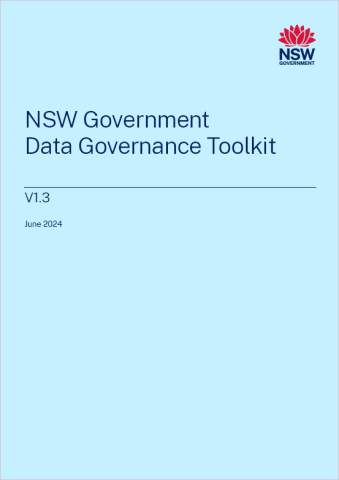Module 9: Workforce Skills and Capability
What is it?
Data skills and capability are core elements of effective data governance. All agencies need to be supported by a workforce that has the right set of skills and capability to manage and use data effectively. This means ensuring all staff have a basic level of data literacy and that there are enough staff with specialised data skills spread across the organisation. Specialised data skills include the ability to manage and analyse large amounts of data, implementation and management of data systems, data engineering and cyber security.
Why is it important?
Data skills and knowledge are essential for all NSW Government employees to support evidence-based decision-making, whether in policy development, program management or service delivery. These skills also assist in improving operational efficiency, raising service delivery standards, and improving stakeholder engagement. Inadequate data literacy can not only impact the ability of the agency to extract value from the data they collect, it can also leave agencies vulnerable to privacy and security breaches.
What good looks like
Data-literate: all staff have a foundational level of data literacy.
Specialised: staff with specialised data skills are spread evenly across the organisation and can be leveraged when required.
Development-focused: senior leadership support the professional development of data skills and awareness across all levels of the organisation.
Cross-disciplinary: teams have the right combination of technical data skills, as well as non-technical policy, project and business acumen.
Training: staff have access to data skills resources and are trained in relevant governance policies and procedures.
How to achieve good practice
Assess workforce skills and capabilities needs. A Data Governance & Management (DG&M) Capability will help facilitate a conversation within the organisation to identify and address data skills and capability gaps.
Develop a workforce strategy to address data skills and capability gaps. The strategy should include the development of training, resources, and education to build and develop individual capabilities. It is best practice to include a mix of face-to-face, discussion-based and leadership-led training as well as self-guided online training. For self-guided learning resources, refer to the NSW Data Skills – Learning Resources and the APS Data Literacy Learning Guide.
Invest in the development and recruitment of staff with specialised data skills.
The following examples provide a good reference point for identifying the skills required across teams, as well as the agency as a whole:
Data analyst – manipulate and interpret data for decision making and to solve problems
Data policy and law expert – monitor the effectiveness of controls, resolve compliance challenges, advise on legal rules and controls to meet applicable legislation and standards
Data scientists – are hybrid experts in analysis and software programming, possess strong business acumen, coupled with ability to communicate findings
Data infrastructure engineers – support the infrastructure required to make data applications and platforms available in agencies and across the public service
Data architects – ensure the design of data systems, provide technical support for systems to undertake analysis.
Establish multidisciplinary teams to achieve skill-sharing and optimal project outcomes. If there is a lack of data expertise in your agency, engage staff with specialised data skills during the stage when the skill is required.
Ensure role descriptions include the skills and capabilities relevant to the data governance and management activities staff are expected to undertake.
Questions to ask yourself
What specific roles and responsibilities are required for effective data governance, and do we have the right people in place for these roles? |
What are the current skill levels and capabilities of the workforce regarding data governance? Are there any existing areas of expertise that can be leveraged? |
What are the key challenges or obstacles that employees face when it comes to understanding and implementing data governance principles? |
Are there any regulatory or compliance requirements that necessitate certain skillsets within the data governance team? |
How well do employees understand data privacy, security, and ethics? What training is needed to ensure responsible data handling? |
Are there any gaps in knowledge related to data management, data quality, data analytics, or data-related technologies? |
How will the organisation ensure that data governance training and development align with the overall business objectives? |
Are there any external training resources, workshops, or certifications available to enhance data governance skills? |
How can we foster a culture of continuous learning and improvement in data governance practices? |
What mechanisms will be put in place to measure the effectiveness of the workforce's data governance skills and capabilities? |
How can data governance training be tailored to different departments or teams, considering their specific needs and responsibilities? |
Are there opportunities for mentorship or peer learning to encourage knowledge sharing and skill development within the organisation? |
How will the organisation incentivise and motivate employees to proactively participate in data governance initiatives? |
What tools or technologies can be implemented to support the workforce in their data governance efforts? |
How will the organisation stay updated on the latest trends and advancements in data governance, and how will this knowledge be disseminated to the workforce? |
How will the organisation address resistance to change or any cultural barriers that may hinder the adoption of data governance practices? |
What resources and support will be provided to employees to ensure they have access to the necessary training and development opportunities? |
How can we create a clear career path and growth opportunities for employees in the data governance domain? |
How will the organisation address the potential need for external expertise or consultants to assist in building data governance capabilities? |
How will data governance training be integrated into the onboarding process for new employees? |
